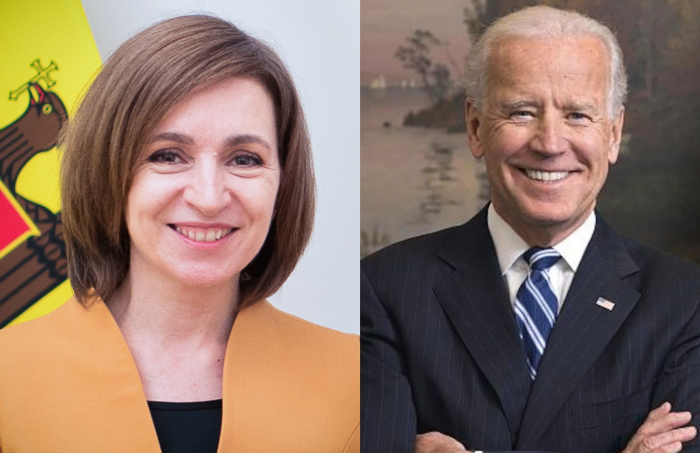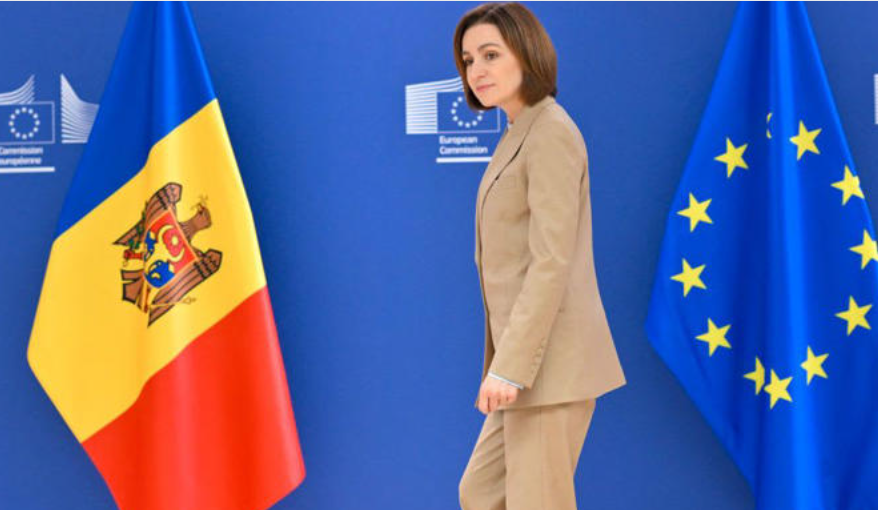Eastern Region of Moldova Declares a State of Emergency as Ukraine Refuses to Continue Transit Agreement for Russian Gas
In the nation of Moldova, the left bank of the Dniester (Nistru) River is home to 360,000 citizens in the Russia-controlled region of Transnistria. To the right side of the dividing line made by the Dniester is the western/EU allied side of Moldova.
The Russian energy company, Gazprom, provides gas to Transnistria through Ukraine. The gas is subsidized by Russia, so the Russian-allied citizens of Transnistria do not pay market prices; in fact, the gas is provided free. However, the gas into Transnistria is also used to power the Moldavskaya GRES power plant, which generates electricity for both banks of the Dniester. In essence, the “free” Russian gas is provided to both the pro-Russia and anti-Russia elements in the region.
The contract for the transit of Russian gas into Transnistria through Ukraine’s territory expires on January 1, 2025. Despite the war between Russia and Ukraine, gas transit and the contract signed in 2019 have continued. However, Ukraine under Zelenskyy has repeatedly said they do not plan to extend the gas transit agreement with Gazprom. This is a way for Zelenskyy, technically NATO, to create anxiety and crisis in the region.
The western aligned government of Moldova have been demanding that Russia withdraw all military and influence from the Transnistria region, meanwhile the Transnistria local governing officials are requesting Moscow to keep the flow of Russian gas ongoing. Observers have noted, “It looks stupid to ask for the withdrawal of Russian troops from Transnistria and meanwhile request Russia to continue to give free gas to the region.”
The citizens of Transnistria are pawns in the political schemes. Zelenskyy (Ukraine) is refusing to allow gas to heat their homes to come after the transit agreement ends. Ukraine, together with NATO, want Russians out of Transnistria. The looming energy crisis has created a state of emergency that the west, together with the Moldavian government intends to exploit.
It is not accidental that the EU/NATO/US State Dept/CIA are using the flashpoints of Georgia and Moldova to create conflict against Russia (check the map).
EUROPE – Moldova enacted a state of emergency, as the country gears up for an energy crisis at the start of 2025 following the end of Ukraine’s obligations to transport Russian gas through its territory.
Moldova, and especially the country’s breakaway region of Transnistria, will be hit the hardest following the end of the decades-long agreement.
Moldovan Prime Minister Dorin Recean said that the country has enough gas, bought on the international market, to keep the right bank of the Dniester (Nistru) River warm throughout the winter ahead.
But, he added, some360,000 citizens on the left bank of the river, in the Russia-controlled region of Transnistria, “are still dependent on one source of import — Gazprom.”
The leader of the Russian-controlled Transnistria declared a state of economic emergency on Dec. 6. Heaters, as well as basic goods like rice, grains, matches, salt and so on, have disappeared from shops, hoarded by the local population in anticipation of the crisis ahead.
Following decades of relying on free Russian gas, the Moscow-controlled region will now need to pay market prices, lowered by energy bill relief schemes provided by the Moldovan government. (read more)
It’s almost a guarantee at this point the CIA and U.S. State Dept. have ongoing strategic operations in control of Moldova. Energy market prices will be a lot higher than what eastern Moldovans pay now. There is going to be unrest and political friction created by this crisis as the west says, “apparently, independence has a several costs.”
White House FEBRUARY, 2023 – President Joseph R. Biden Jr. met today with Moldovan President Maia Sandu in Warsaw. President Biden reaffirmed strong U.S. support for Moldova’s sovereignty and territorial integrity. He highlighted ongoing US assistance to help Moldova strengthen its political and economic resilience, including its democratic reform agenda and energy security, and to address the effects of Russia’s war against Ukraine. (link)
Moldovan President Maia Sandu
For more than two years we have been saying to keep an eye on Moldova in the background. On November 2, 2024, Moldova held their national election, and while the actual number of people living in Moldova voted for the anti-war position, once the overseas ballots were added the results changed. The nationalists became the minority and the pro-war/pro-EU globalists declared victory.
 This may seem like a relatively ‘over there’ and small issue. However, the people who control Joe Biden, the U.S. State Dept and the CIA have been positioning themselves in/around Moldova for several years now.
This may seem like a relatively ‘over there’ and small issue. However, the people who control Joe Biden, the U.S. State Dept and the CIA have been positioning themselves in/around Moldova for several years now.
Now that Georgia has voted to reject the EU and anti-Russia efforts, watch out for Moldova to become the spark that leads to escalated conflict with Russia.
Moldova has a significant population of pro-Russia citizens in the east, which makes the internal domestic dynamic a little strenuous to manage. It is very similar to Ukraine in that regard. It is much smaller than Ukraine, but similar inside the national political dynamic. Additionally, the geopolitical dynamic that is unfolding with the use of Moldova is identical to how the U.S/NATO exploited Ukraine.
It was the Moldovan ex-pat community, living outside Moldova, that overwhelmingly decided the fate of this small nation that borders Ukraine.
The people living in Moldova are majority aligned with Russia. However, the people voting in the election from outside Moldova changed the dynamic of the election. This reality creates a major source of angst for Russia and Vladimir Putin. This dynamic also creates the point on the stick the EU/USA and CIA will use to poke the bear.
Watch closely.
When the U.S. activates NGOs in European countries (Moldova, Hungary, Georgia) the media call it “spreading democracy.” However, when the people who live in the country organically rise up in the opposite direction against the government outcomes from the NGO pressure, the media call it “Russian interference.”








Post a Comment